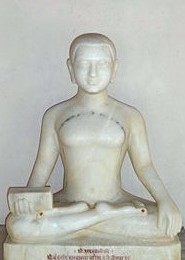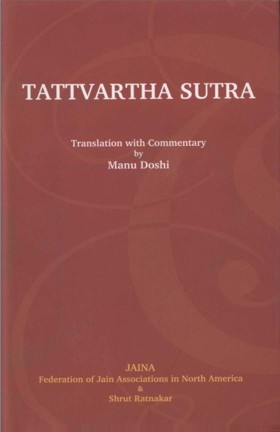10.05 Tadanantaramoordhwam Gachchhatyā lokāntāt
Audio: Sanskrit: तदनंतरमूर्ध्व गच्छत्यालोकांतात्।
Hindi: सम्पूर्ण कर्मो से मुक्त हुआ जीव तुरंत लोक के अंत तक ऊपर जाता है।
10.06 Poorvaprayogādasangatvādbandhchchhedāttathagatiparināmachchatadgatih
Audio: Sanskrit: पूर्वप्रयोगादसंगत्वाद्बंधछेदात्तथागतिपरिणामाच्च तद्गतिः।
Hindi: पूर्व प्रयोग से, संग के अभाव से, बंधन के टूटने से, और वैसी गति के परिणाम से मुक्त जीव ऊपर की और जाता है।
English: Thereafter the soul rises above till the top of the universe. The rising occurs by virtue of Poorvaprayog, Asangatva, Bandhchhed and Tathāgatiparinām.
The question would be, 'What happens at the time of liberation?' The sutra 5 states that the liberated soul rises towards the top of the universe and sutra 6 explains how that occurs. īt specifies the following four reasons for the upward movement.
 Acharya Umaswati
Acharya Umaswati
